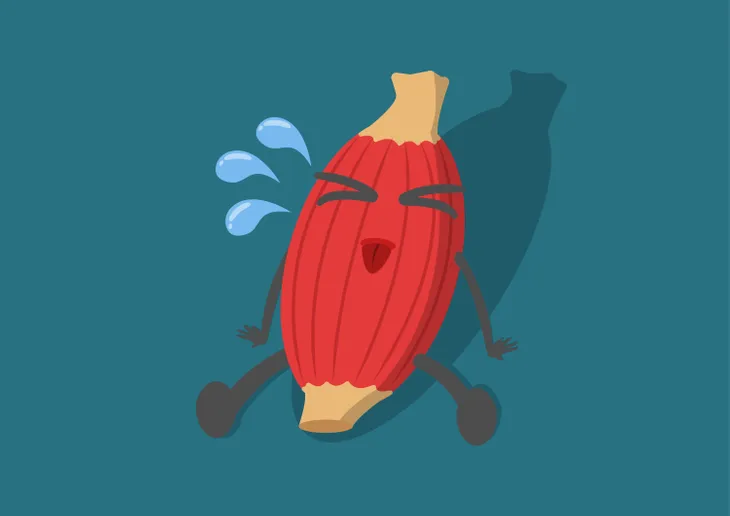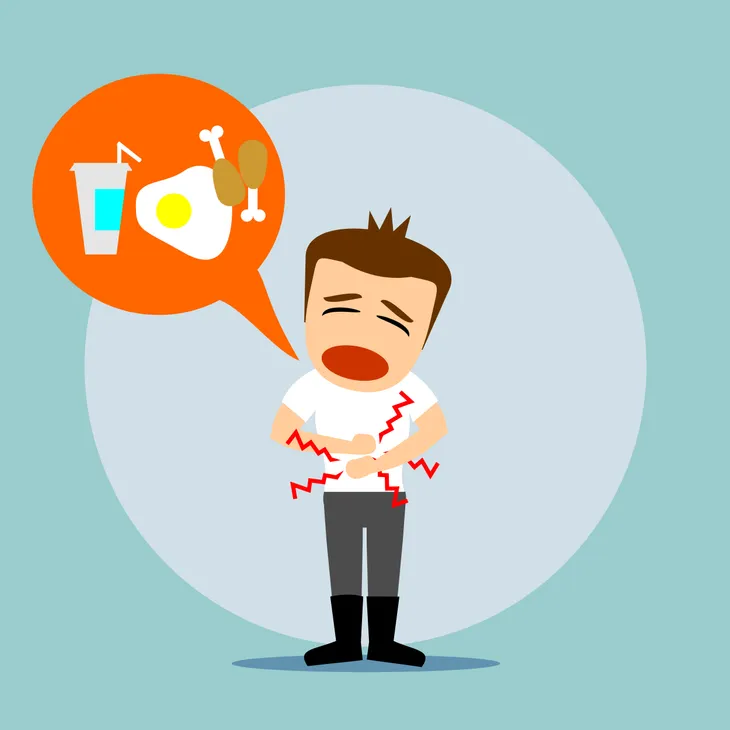You’re bombarded with messages about how important it is to monitor your sugar intake, as too much can cause a host of problems (especially if you’re diabetic). However, it’s just as important to make sure you have adequate sugar in your system, as you can end up with a variety of symptoms from low blood sugar.
It’s also important to note that if you’re diabetic, certain medicines can actually leave your blood sugar at dangerously low levels due to the increased hormone that regulates how the body processes glucose (sugar), especially if you accidentally skip a meal. If this is the case, you should consume something healthy to deliver sugar, such as fruit or juice, to help correct it.
Want diet & nutrition content delivered straight to your inbox? Sign up for our exclusive diet & nutrition newsletter!
1. Irritability
If you suddenly find yourself lashing out at people for no apparent reason, then you may need a hit of sugar or carbohydrates, notes EverydayHealth.com. The word “hangry” has caught on in modern vocabulary, and it refers to a foul mood when you’re hungry and your body needs food, specifically glucose.
These mood swings can cause “hysterical crying” in some people, as well as “uncontrollable anger,” adds the source. If you start to feel your anger levels rising or situations seem to be affecting you more than usual, try eating a banana or another healthy source of sugar.
2. Sweating
If you're sitting in a moderate temperature environment and you're still breaking out into sweats, then low blood sugar (known clinically as hypoglycemia) may be the culprit. WebMD notes that sweating is a symptom of "mild low blood sugar," which is when your blood sugar has dropped below 70-mg/dL (diabetic patients may not notice these symptoms at this level).
Sweating will occur most often on the back of the neck and hairline when blood sugar drops. You should be especially aware of this condition at night, as your partner may be sweating profusely in their sleep and not notice (also known as nocturnal hypoglycemia).
3. Shakes and Tremors
Everyday Health notes that you may notice some shakiness due to an imbalance in glucose that affects your central nervous system. Your body will try to compensate by releasing catecholamines (hormones such as dopamine and adrenaline) to compensate, which are meant to stimulate glucose production and can lead to this symptom.
Normally, having more dopamine in your system is a good thing, as it's a natural mood enhancer and painkiller. However, if you haven't just exercised or engaged in some kind of pleasurable experience (such as eating a chocolate-coated granola bar), then you should be especially wary of why you have the shakes.
4. Dizziness
You can start feeling a little off-kilter and unsure on your feet even at mild low blood sugar levels, especially if you're diabetic. NewLifeOutlook.com notes that diabetics can experience "sudden dizziness" that can be accompanied by a "sudden flash of heat" that can be alarming.
If this condition occurs, you should let people know that you're diabetic so someone can assist you (and hopefully bring you a snack that boosts your glucose levels). However, while low blood sugar can cause anyone to feel dizzy, there are a variety of other reasons you could become light-headed from the room being too hot to being dehydrated, even a reaction from medications.
5. Loss of Concentration
Your brain is, "especially sensitive to a drop in glucose," and you may have trouble focusing on that report in front of you or understanding what someone is explaining to you, according to Everyday Health.
This inability to concentrate may be from exhaustion, but more often than not you can help correct it with a quick hit of sugar. Try to consume snacks that have a balance of fats and proteins, rather than eating a cookie or chocolate bar as you may have a "sugar crash" from the latter sources and lose focus again.
6. Muscle Twitches
WebMD says that muscle twitches are a symptom of moderately low blood sugar, which is when your blood sugar drops below 40-mg/dL. Muscle twitches are described by the source as "entirely involuntary," meaning you can't suppress them.
Twitches can affect isolated areas of your body, such as your arms, legs or eyelids. However, sources point out that muscle twitches could also be a symptom of too much caffeine, so perhaps ease off on the coffee and focus on consuming complex carbohydrates.
7. Loss of Consciousness
Obviously, if you're the patient in this situation, you won't notice this symptom. So, it's important not to ignore the other warning signs (especially if you're diabetic). The Mayo Clinic says that diabetic hypoglycemia can also lead to seizures, which can be terrifying for all involved. In rare cases, diabetic hypoglycemia can be deadly.
The clinic notes popping some glucose tablets can help regulate blood sugar as a short-term fix for diabetes patients. If you ignore the early symptoms, they can go beyond the previously mentioned conditions until they become a medical emergency.
8. Extreme Hunger
Have you ever been so hungry that you’ve eaten a full meal and still find yourself hungry at the end? Well in some cases, extreme hunger could be the result of low blood sugar. Everyday Health explains that, in this case, your body is sending you a message that it needs more glucose. For those who suffer from low blood sugar who notice a spike in increased hunger, you should plan your next meals strategically to give your body the right amount of glucose it is in need of.
The sources suggests eating approximately “15-grams from a carbohydrate-rich food source.” For example, Everyday Health recommends either two tablespoons of raisins, 4-ounces of fruit juice, or even some hard candy! If you are eating something packaged, it’s a good idea to check the nutritional content and serving sizes to consume the right amount of carbohydrates.
9. Slurred Speech
In extreme cases, people who are experiencing a hypoglycemic episode may appear to be intoxicated, as they may have slurred speech, notes the Mayo Clinic. Other symptoms that mirror intoxication are confusion, clumsy movement, and blurred vision. It should be noted that these symptoms occur without even touching alcohol!
The source notes that low blood sugar may not be the only potential cause for these symptoms, and a blood test is recommended to determine the actual cause, as it could be something more serious.
10. Anxiety
If you are feeling an unexplainable sense of anxiety and you don’t suffer from an anxiety disorder, it could be because you have low blood sugar. Everyday Health notes that when our blood sugar levels drop, our bodies release a hormone called epinephrine, which is released from the adrenal gland. This is a signal for our body to make more sugar, resulting in an adrenaline rush.
When we feel anxious, our bodies react in a "fight or flight" response, so it might be reacting in an anxious manner as a way of protection. However, if you do suffer from an anxiety-related disorder, it’s important to try to distinguish whether it is related to low blood sugar or a legitimate anxiety attack.













